The concept of “Green University” emerged in 1990, when leaders of 22 of the world’s leading universities met in France and signed the Talloires Declaration – the first document committing to sustainable development, in the context of increasing concerns about natural resource depletion, pollution and environmental degradation.
In Vietnam, many universities have proactively pursued the Green University model, creating positive changes. Since May 2019, the University of Social Sciences and Humanities (Vietnam National University, Ho Chi Minh City) has implemented the program "Humanists build Green Universities", in three phases: Green Awareness (2018 - 2022), Green Action (2022 - 2026) and Green Culture (2026 - 2030).
Ho Chi Minh City University of Economics also promotes the “Green University - Green Campus” project in the strategy for multidisciplinary and sustainable university development in the period 2021 - 2030. The project is implemented according to the “living laboratory - Living Lab” model.
According to a survey conducted by the school in December 2024, after 4 years of implementation, 100% of staff and students are aware of the project. From August 2023 to December 2024, the school collected 6.4 tons of recyclable waste. Lecturers and students conducted more than 71 research papers on sustainable development and participated in the production of 1.4 million kWh of solar power.
Since 2019, Ho Chi Minh City Open University has completely stopped using plastic bottles and disposable plastic straws on campus. Meanwhile, Ton Duc Thang University and Tra Vinh University have been ranked high for many consecutive years in the global green university rankings published by UI GreenMetric.
Despite many positive results, the Green University model in Vietnam has not been widely replicated. The biggest difficulty is the lack of resources to invest in green facilities and infrastructure. Environmentally friendly construction materials are often more expensive than traditional materials, limiting access. In addition, uneven awareness and lack of specialized human resources are also significant barriers.
Associate Professor Dr. Bui Quang Hung - Deputy Director of Ho Chi Minh City University of Economics - said: Not everyone is willing to change their consumption habits, classify waste or save energy. The concept of "sustainable development" has been abused in the media without implementation, making many people skeptical about its actual effectiveness. Cooperation with waste collection businesses faces many difficulties because the circular economic model in Vietnam is still young.
New ventures often do not sustain long-term operations, forcing schools to constantly seek and change partners to ensure stable operations. Measuring the effectiveness of sustainability initiatives in the academic environment is also challenging, requiring accurate measurement tools and methods to track progress and actual impact.
Currently, national strategic documents such as the Green Growth Strategy, the National Climate Change Adaptation Plan and the commitments at COP26 create favorable conditions for synchronizing the Green University model throughout the higher education system. However, the implementation cannot be done in a short time, and it is impossible to mechanically copy models from developed countries, because conditions and circumstances are different.
Green universities are not only a trend, but also an inevitable requirement in the sustainable development strategy. To replicate this model, in addition to the efforts of each training institution, a clear roadmap and financial support and incentive policies from the State are needed.
Specifically, it is necessary to soon issue policies on tax exemption and reduction, preferential credit support, as well as standardize criteria for building green schools suitable for the local environment. These are important factors to promote the development of green universities, bringing long-term benefits to learners and the country.
Source: https://giaoducthoidai.vn/khat-vong-dai-hoc-xanh-post742285.html












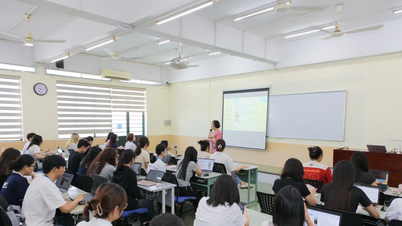


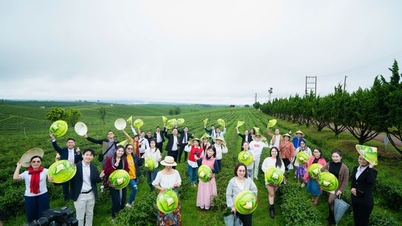







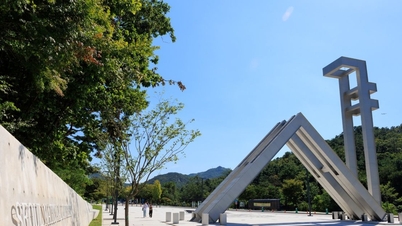


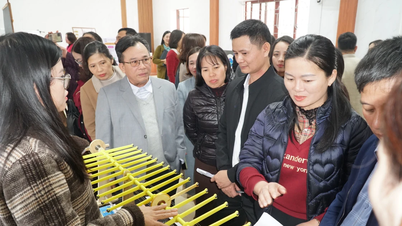






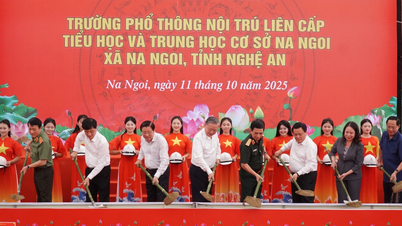



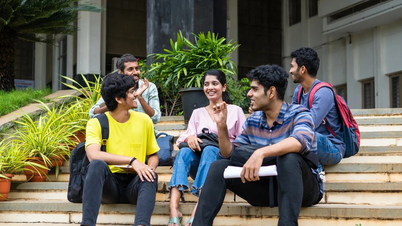
![[Photo] Da Nang: Hundreds of people join hands to clean up a vital tourist route after storm No. 13](https://vphoto.vietnam.vn/thumb/1200x675/vietnam/resource/IMAGE/2025/11/07/1762491638903_image-3-1353-jpg.webp)




































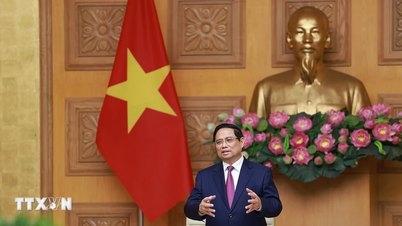


















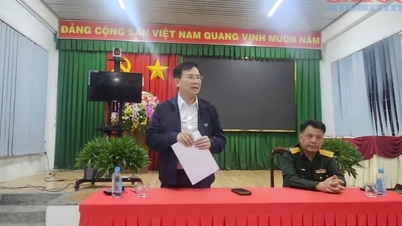


















Comment (0)